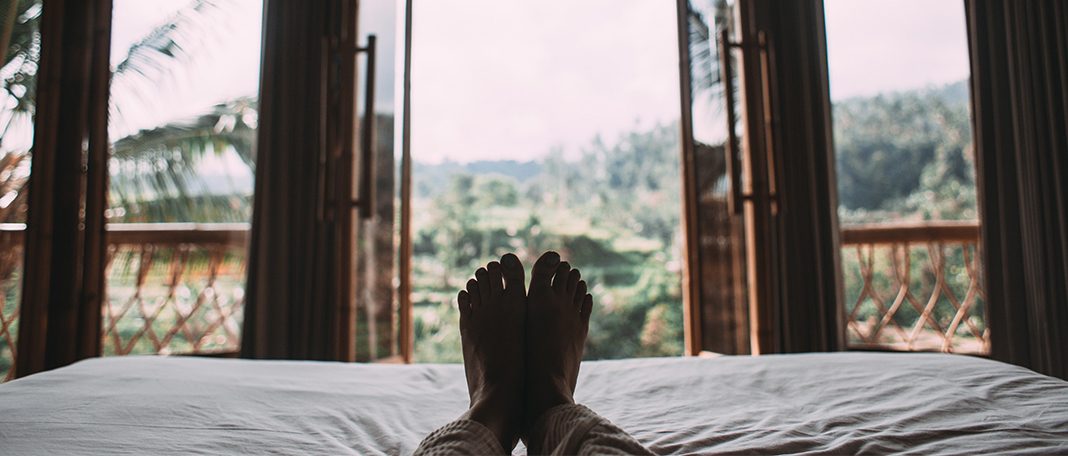At the moment, sleep tourism is the buzzword of self-care. Taking a vacation or traveling for the sole purpose of sleep does seem unconventional, but there are reasons why sleep tourism is booming.
Vacations in the past often focused on a travel itinerary. Then came the era of resorts, retreats, and spas. These vacations meant relaxing your mind and body and returning home with a healthy mind. People with hectic work lifestyles preferred staying in one place during vacation and doing multiple activities there.
The pandemic shifted the work lifestyle from hectic to at-home. It meant less travel to work but more workload than before. Centers for Disease Control and Prevention (CDC) data states that one in three adults in the US does not get enough sleep. To add to this, the global pandemic– COVID-19 has only decreased sleep quality in adults leading to many realizing its value.
Hence sleep tourism is booming. So what exactly happens in sleep tourism, and what are its benefits? Let us delve in.
Sleep tourism facts
In the past, ‘sleep tourism’ meant relaxing in exotic locations like ice hotels, and safari camps Over time the term has taken a different turn. At present, sleep tourism means going on vacation for only one purpose – getting some decent sleep.
Sleep tourism focused stays offer the following:
- Sleep-inducing meditations and recordings.
- Pillow menu with options to sleep on the back or side.
- Weighted blankets.
- Bedtime tea.
- Scented pillow mists that invite sleep.
Establishments that focus on sleep tourism offer a variety of sleep-focused programs. There is no one-size-fits-all when it comes to sleep tourism. Different establishments approach the concept in different ways. Most sleep vacations are for three to seven days or more.
Benefits of sleep tourism
Short sleep vacations deliver healthy sleep strategies to people. Doctors point out that it helps in promoting good sleep and identifying if one has any serious medical conditions related to sleep like:
- Sleep apnea
- Restless leg syndrome
- Insomnia
This helps people opting for sleep vacations, to further improve their sleep quality with medical assistance. Hence hotel establishments offering sleep vacations are beginning to partner with scientists and medical professionals to help their customers.
Sleep tourism is booming but is it expensive?
Yes, the majority of sleep-focused establishments and experiences fall within the luxury travel sector. It is a high reach for everyday people who still may have serious sleep problems and disorders. Doctors suggest that all hotels and resorts should make sleep vacations a priority and affordable to all. As one points out, “it doesn’t cost much at all to leave a pair of earplugs next to the nightstand.”
People should be encouraged to change their harmful sleep habits, and sleep tourism is one of the ways to do it. Scientists and doctors insist that sleep tourism has increased but not fully expanded. There are many avenues to be explored in travel and the science of sleep.
If you or anyone you know suffer from sleep-related illnesses, kindly do not self-diagnose. Consult your healthcare provider.
















